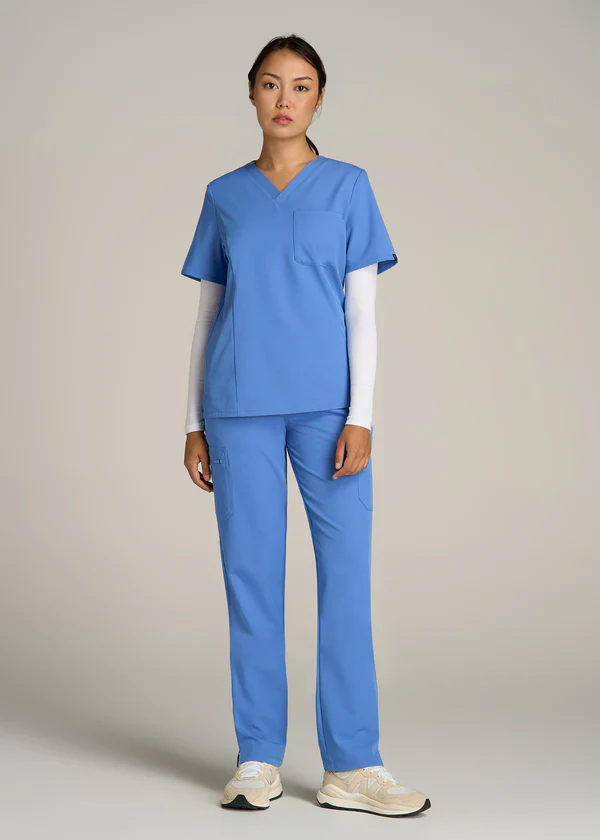
###Nurse - Bsc Nursing:
- A nurse is a healthcare professional trained to provide care and support to patients in various settings, including hospitals, clinics, and community health centers. Nurses are essential in promoting health, preventing illness, and managing patient care. They work alongside doctors and other healthcare professionals to ensure the well-being of patients, administering treatments, educating patients about health conditions, and providing emotional support.
Regulatory Body:
In India, the regulatory body for nursing is the Indian Nursing Council (INC). The INC is responsible for the regulation of nursing education and practice in the country. It sets standards for nursing programs, approves educational institutions, and ensures that nursing professionals adhere to ethical and professional standards.
Nurse Overview:
Program Details:
- Full Form: Bachelor of Science in Nursing (B.Sc Nursing)
- Duration: 4 years (including academic study and practical training)
- Examination Type: Semester-Based
- Eligibility: 10+2 with a minimum of 50% marks, with compulsory subjects including Physics, Chemistry, and Biology
- Admission Process: Entrance Exam or Merit-Based (depending on the institution)
- Course Fees: INR 50,000 to 2 lakhs per annum, depending on the institution
- Average Initial Salary: INR 3-7 lakhs per annum (approx.)
- Top Recruiters: Hospitals, Clinics, Nursing Homes, Community Health Centers
- Job Positions: Staff Nurse, Nurse Educator, Nurse Practitioner, Clinical Nurse Specialist
Admission Procedure:
1. Entrance Exam or Merit-Based Admission:
- Requirement: Admission to B.Sc Nursing programs may be based on entrance exams or merit in the 10+2 examination.
- Entrance Exams: Some institutions conduct their own entrance exams, while others accept scores from national or state-level nursing entrance exams.
- Application: Candidates must apply to nursing colleges or universities, following the specific admission procedures outlined by each institution.
2. Eligibility Criteria:
- Educational Qualifications: Completion of 10+2 with a minimum of 50% marks in Physics, Chemistry, and Biology.
- Age Limit: Typically, candidates must be between 17 and 35 years of age.
- Entrance Exam Scores: Candidates must meet the cut-off scores set by institutions for admission.
3. Counseling and Interviews:
- Candidates who meet the eligibility criteria may be required to attend counseling sessions or interviews as part of the admission process.
Why Study Nursing?
- Essential Profession: Nursing is a vital profession in the healthcare system, providing direct patient care and support.
- Diverse Opportunities: Graduates can work in various settings including hospitals, clinics, community health centers, and research institutions.
- Job Stability: There is a high demand for qualified nurses globally, ensuring stable employment opportunities.
- Career Growth: Nursing offers numerous career advancement options such as specialization, nurse practitioner roles, and administrative positions.
- Impactful Work: Nurses play a crucial role in patient recovery and health promotion, making a significant impact on individuals' lives.
Nurse Syllabus:
Year 1:
- Nursing Foundation: Basic nursing principles, ethics, and communication skills.
- Anatomy and Physiology: Structure and function of the human body.
- Microbiology: Study of microorganisms and their impact on health.
- Nutrition: Principles of nutrition and dietetics.
- Psychology: Basics of mental health and psychological development.
Year 2:
- Medical-Surgical Nursing: Nursing care for patients with medical and surgical conditions.
- Pharmacology: Study of drugs, their actions, and administration.
- Community Health Nursing: Public health practices and community-based care.
- Maternal and Child Health Nursing: Care during pregnancy, childbirth, and pediatric care.
Year 3:
- Mental Health Nursing: Nursing care for patients with mental health disorders.
- Pediatric Nursing: Specialized care for children and adolescents.
- Obstetric Nursing: Care for women during pregnancy, labor, and postpartum.
- Research and Evidence-Based Practice: Introduction to research methodologies and evidence-based practice.
Year 4:
- Advanced Clinical Practice: Specialized clinical training and patient care.
- Nursing Management: Principles of management and leadership in nursing.
- Professional Issues: Ethical, legal, and professional issues in nursing practice.
Internship: A mandatory practical training period involving hands-on experience in various healthcare settings, such as hospitals and community health centers. The internship helps students apply theoretical knowledge in real-world situations and gain practical skills.
Have a query? Our friendly reception team is ready to assist. For urgent needs, our doctors and experts are here to provide swift support.